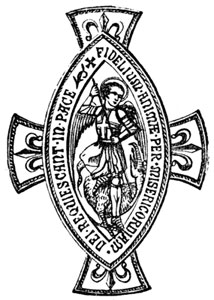|
“Sympathy with the Faithful Departed.”  THE SERMON PREACHED AT THE Church of S. Thomas, REGENT STREET, W., Fifteenth Anniversary of the Guild of All Souls, TUESDAY, MAY 15, 1888, BY THE REV. CANON T. T. CARTER.
LONDON: 1888.
|
|
“Sympathy with the Faithful Departed.”  THE SERMON PREACHED AT THE Church of S. Thomas, REGENT STREET, W., Fifteenth Anniversary of the Guild of All Souls, TUESDAY, MAY 15, 1888, BY THE REV. CANON T. T. CARTER.
LONDON: 1888.
|